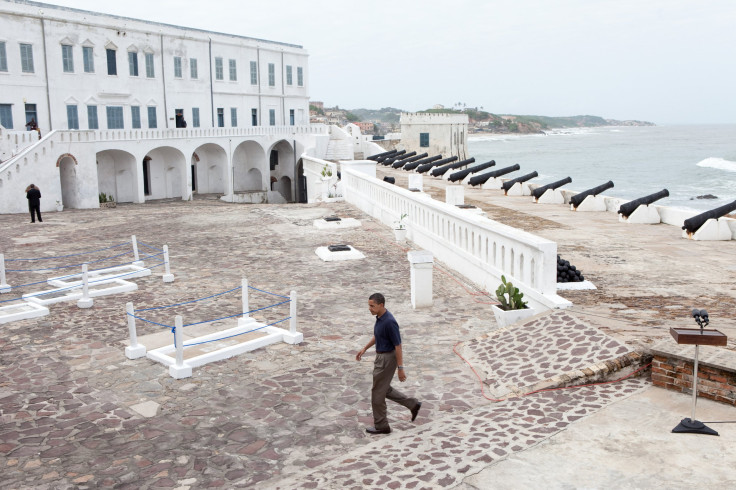Obama Affirms Commitment To Food Security In Africa Tour: Will The $47M Increase In Assistance Be Worth It?

President Barack Obama wrapped up the first country of his three-country tour of sub-Saharan Africa Friday, where he highlighted the financial commitments of the U.S. put into place for food security efforts. His first stop was in the Western part of Africa in Senegal, where a food shortage currently threatens over one million children's lives.
"When people ask what's happened to their taxpayer dollars and foreign aid, I want people to know this money is not being wasted," Obama said today as he toured the country's food security exposition in Dakar, Senegal.
The U.S. will increase its assistance to $47 million to go toward seeds and agriculture technology and equipment, and an additional $134 million will come from private companies and investors to increase the quality of Senegal's agricultural system in hopes to create food sustainability.
The financial assistance is "helping people to become more self-sufficient and it's creating new markets for U.S. companies," Obama announced.
Obama and the First Lady arrived in Africa on June 26, and despite 94-year-old South African President Nelson Mandela's poor health, the trip continued as originally planned. Mandela was recently placed on life support while hospitalized for a lung infection, bringing about an ambiguous future for the anti-apartheid icon's reign. Obama described Mandela as a "personal hero" who first inspired his political activism in college.
Obama was nonetheless accompanied by business leaders and agriculture ministers to weigh in on the ever impeding issue of food logistics in Africa. According to the Food and Agriculture Organization of the United Nations, there are nearly 10 million people starving and in need of emergency food assistance in sub-Saharan Africa alone.
On his second day, Obama reminded those around him of the tremendous struggles they have faced and already overcome — that from the apartheid to democratic governance and human rights protections, they have accomplished a great deal of adversities and have only yet to conquer their hunger crisis and achieve food security.
Senegal is the latest country to join the New Alliance for Food Security and Nutrition, a new program conceived last year by the U.S. that partners with Group of Eight member countries, the African Union, heads of African states, private sectors and countries Tanzania, Ethiopia, Ghana, Burkina, Faso, Ivory Coast, Mozambique, Benin, Malawi, and Nigeria. As part of Senegal's membership, the country is pledging to expand access to credit for small farmers, offer tax exemptions to its tax system, and better target seed and fertilizer subsidies. The alliance has an ambitious to-do list, which includes changing tax policy and pledge, corruption, private investment commitments, and an end goal of rescuing 50 million people from poverty by 2022.
According to White House Deputy National Security Adviser, Ben Rhodes, food security is "one of our signature development efforts here in Africa and one that is directly relevant not to just lifting people out of poverty but to promoting economic growth."
Obama is scheduled to leave for South Africa and Tanzania after Friday's conference following a meeting with Senegalese President Macky Sall. Obama said the tour is "a moment of great progress and great promise for the continent."
Demonstrators marched the U.S. embassy in South Africa on Friday to peacefully protest Obama's tour. The demonstrators oppose the U.S. policy on Cuba, the war in Afghanistan, global warning, and other various issues.
Protestor Abdurahman Khan is convinced Obama's intentions are of ill intent. "He's coming for the wealth and resources, for the gold and the diamond mines, while the majority of Africans and South Africans are suffering," said Khan.
According to The New York Times, White House officials said the President's trip would provide an opportunity for American businesses to increase their investments in African countries as well as bolster trade throughout the continent.
The Obama administration plans to release a report on Friday to explain the progress and current status of the food disparity in the world, called "Feed the Future" program. The program extends throughout 19 countries and has affected seven million households by increasing food production up to 70 percent for some members, as well as improving the quality of nutrition for 12 million children.
Saturday morning, the President will be greeted with a formal arrival ceremony in Pretoria, South Africa and will then meet with President Jacob Zuma of South Africa, who insisted Obama still make the trip despite Mandella's critical condition.
Published by Medicaldaily.com



























